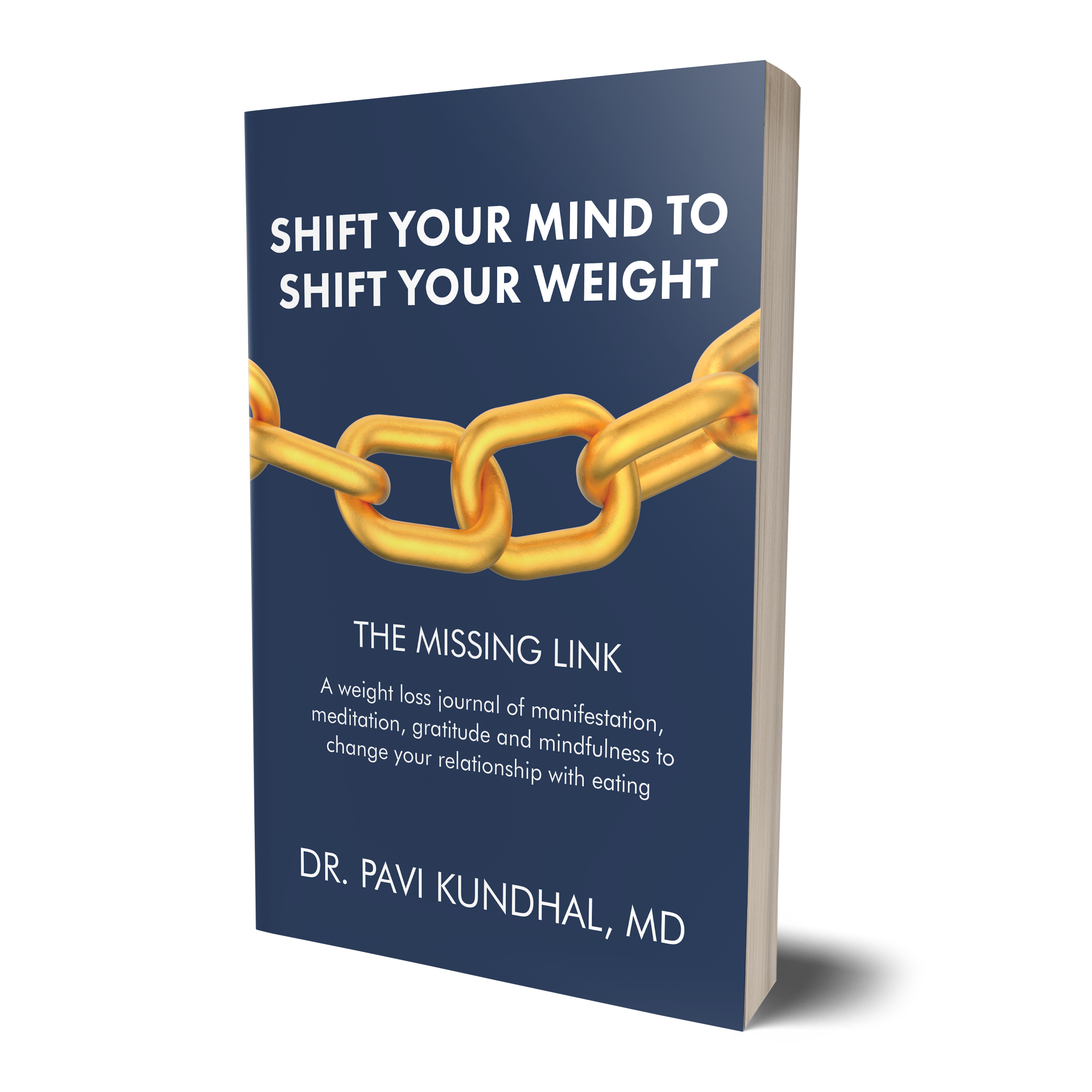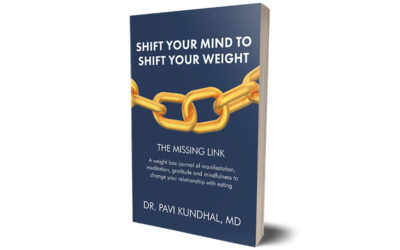Mindfulness and Weight Loss
Dr. Pavi Kundhal

What is mindfulness?
It is the ability to be fully present – being aware of what you are doing and where you are. It allows us to control our feelings and emotions and be truly present in the now.
How can mindfulness help with losing weight?
1. Mindfulness can help you become more Intune to your body cues when you are satiated and no longer physically hungry. You eat in a more aware fashion and are better able to identify hungers cues and listen to your body when you are full. You are less likely to experience emotional hunger and act on emotional cues to overeat. Being aware in the present moment will let you be more aware of why you are eating which can empower you to make healthier food decisions.
2. Mindfulness will help you identify emotional triggers that can lead to overeating. When you are aware of those feelings you can use techniques such as deep breathing and meditation to help those feelings pass. You can change those habits you have developed over time to deal with stress to healthier ones.
3. Stopping Automatic Eating Patterns: mindful eating makes you think before you eat. Instead of automatically eating due to boredom or associated activities such as watching TV – you pause and think before you eat and determine if you need to eat due to physical hunger. Overtime, you disconnect activities with automatic eating. You will get into the habit of questioning whether you are truly physically hungry or eating out of habit or stress.
4. Changing your relationship with food which leads to sustained weight loss. Mindfulness will help you be present and aware of why you are doing what you are doing. You can make conscious food decisions and break old habits or automatic eating patterns. This will lead to sustainable habits and a better chance of long-term weight loss then deprivation diets which are very difficult to maintain.
Mindful Eating Practices:
1. Eat and chew your food slowly. Give yourself time to see how your body is responding to eating. Often if you pay attention to satiety cues you will eat significantly less than if you eat quickly.
2. Have conscious eating. Do not eat while distracted such as watching TV or reading. You will not be present while eating and unable to listen to satiety cues your body is sending you.
3. Have intention when eating. Before you eat ask yourself: Why am I eating? Am I hungry? Asking these questions will make you a more conscious eater.
4. Deliberately choose smaller portions. Be aware to body cues after eating these smaller portions to see if you are still physically hungry and require more food.
5. Pay attention to how you feel after eating. Do you feel satiated or instead feel like you overate. How do you feel after eating certain foods? Being aware of these feelings can help guide your food choices and break bad eating habits.
6. Pause between each bite when eating. Do not eat in a rushed manner. Give your body time to react to each bite and adjust how much you eat accordingly.
The Key to Sustainable Weight Loss
The Key to Sustainable Weight LossDecember 19, 2024Dr. Pavi KundhalShift your mind to shift your weight! Losing weight is hard, keeping it off is even harder. Extreme dieting or lifestyle change without a mindset change inevitably leads to weight regain.Often our...
If You Are Worried that the Holiday Weekend Will Derail Your Weight Loss, Read This Now
If You Are Worried that the Holiday Weekend Will Derail Your Weight Loss, Read This NowDecember 15, 2024Dr. Pavi KundhalTechniques and strategies to stay on course For someone trying to lose weight, holiday weekends can be stressful. It can be difficult to stay on...
Bacteria vs. Belly Fat: How Your Microbiome Shapes Your Waistline
Bacteria vs. Belly Fat: How Your Microbiome Shapes Your WaistlineDecember 13, 2024Dr. Pavi KundhalHow to get your gut bacteria on your side to lose weight We all have billions of bacteria that live in our guts. They are collectively as the microbiome.The microbiome...




